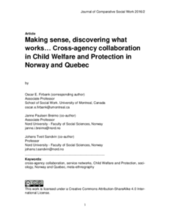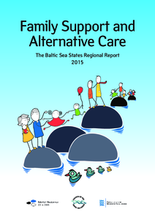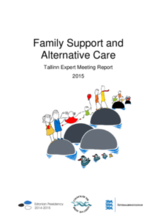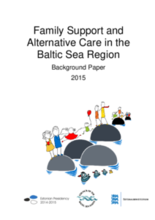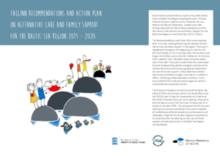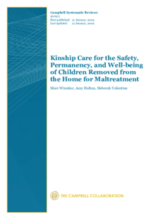Displaying 91 - 100 of 105
This study seeks to understand collaboration dynamics in social services for determining what strategies work best in facilitating collaborative endeavors in specific policy and institutional environments.
To facilitate well-informed decisions, the researchers collected and disseminated evidence from systematic reviews (SR) to local child welfare stakeholders in Norway through plain language summaries. This article describes that process.
Norway’s child welfare agency (Barnevernet) has come under recent scrutiny for its practices regarding children of immigrant parents. According to the article, children of immigrant parents make up 40% of foster care placements.
This report was developed as part of a mapping study aimed at analysing the situation of alternative care and family support in the Baltic Sea Region, assessing the achievements since the 2005 Ministerial Forum and identifying relevant opportunities and challenges for the future.
This report provides an overview of the two-day expert meeting on alternative care and family support in the Baltic Sea Region that took place in Tallinn, Estonia in May 2015.
This background paper was developed as part of a regional study which gathered relevant data and information on family support and alternative care in the eleven Member States of the Council of the Baltic Sea States (CBSS).
Government representatives, experts and professionals from the Baltic Sea Region including Denmark, Estonia, Finland, Germany, Iceland, Latvia, Lithuania, Norway, Poland, the Russian Federation, Sweden and wider Europe gathered at a two-day expert meeting in Tallinn, Estonia and, together, endorsed a set of recommendations and action plan on alternative care and family support on 6 May 2015.
The aim of this study was to assess the prevalence and comorbidity of mental disorders applying diagnostic interviews in an entire population of adolescents living in residential youth care (RYC) in Norway.
This article provides an overview of the current situation in the out-of-home care in Norway and Sweden. Development in later years is described and discussed, including the trends towards privatization of the welfare system in both countries and the role of private, commercial actors within the care sector including out-of-home care for children and young people.
This systematic review published by the Campbell Collaboration reviewed controlled experimental and quasi experimental studies in which children removed from the home for maltreatment and subsequently placed in kinship care were compared with children placed in non-kinship foster care for child welfare outcomes in the domains of well-being, permanency, or safety.

